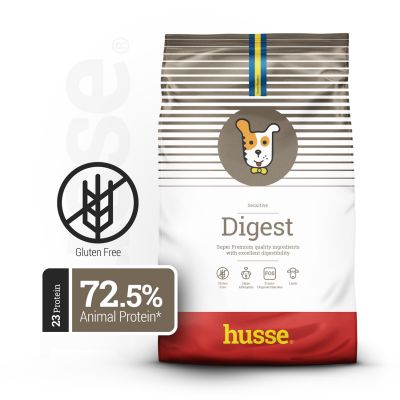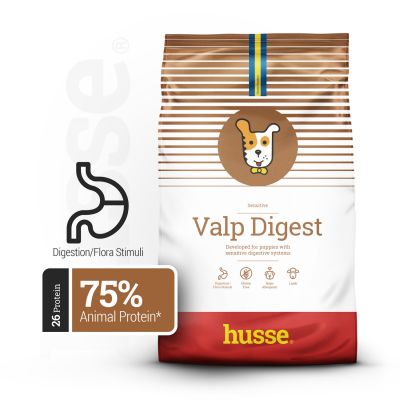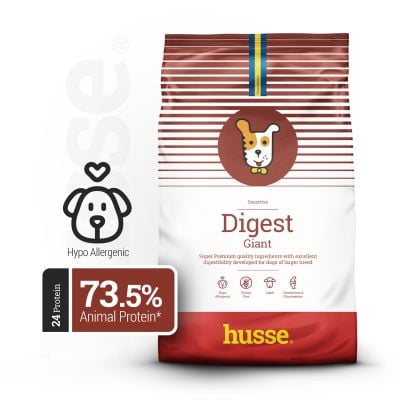Puppy nutrition - healthy diet is a must!
Puppies
During the first year of their life, puppies grow very quickly. You can see visible changes in their physique, they learn all the necessary skills and form their personalities. The first months are a crucial moment in the life of your puppy that will influence your pet’s well-being and health. Healthy diet that suits your puppy’s needs is a key factor of his development.

How to feed a puppy?
Although they are very small, puppies tend to have great appetites. Full of energy dogs can quickly burn through calories they’ve eaten, but they should never consume their daily food intake in a single meal. Puppy’s digestive system is not yet fully formed and their stomachs are small and delicate. That is why you should divide your dog’s recommended food intake into smaller meals throughout the day. Begin with 6 meals a day and gradually increase the amount of food while reducing the number of meals. Adult dogs should be given their food split into two meals. Give your dog meals at set hours and don’t leave the food bowl out for too long (maximum of 30 minutes). If your puppy doesn’t want to eat, take the bowl away and give it another try sometime later.
Sensitive Digest | Hypoallergenic dry food for dogs with digestive sensitivities
Lamb protein, known to trigger less allergies, is the only mammal protein source in the recipe.
Sensitive Valp Digest | Gluten free dry food for puppies with digestive sensitivities


Suitable food for puppies
Good puppy food has to satisfy specific nutritional needs of dogs during their growth and development phase. The right balance of protein, fat and carbohydrates is necessary in supporting proper functioning of the body and added magnesium and calcium promotes healthy growth of bones and muscle. Delicate and not fully formed digestive tract of your puppy needs more care and the right diet for a puppy should be rich in probiotics that promote beneficial gut flora. Rich in calcium and phosphorus formulas for puppies can greatly improve the condition of your dog’s bones and teeth.
Diet that suits all the needs
The growth phase in puppy’s development can vary depending on the dog’s breed and individual size. You need to consider your dog’s size in order to pick a diet that best suits your pet’s needs. Food for small dog breeds is made specifically to accommodate smaller and weaker jaws. Diet for large dog breed puppies is enriched with glucosamine and chondroitin will support your dog’s joints.

When and how to change a diet?
Until they reach one year, puppies should be fed a formula made specifically for puppies. Once your puppy turns 1 year old you can swap the diet to a formula for adult dogs. With that said, you should never switch a dog’s diet abruptly. Your dog’s digestive system requires a transition period to get accustomed to a new composition of the diet. Begin by mixing ¾ of your dog’s current diet with ¼ of a new formula. After two to three days you can switch to feeding your dog ½ of the new formula mixed with ½ your dog’s old food. After another two days you can give your dog a mixture that consist of ¼ of the current food and ¾ of the new formula. The entire transition period should take 6 days. On the 7th day you should be able to give your dog only his new food.






















_400x400.jpg)



_m.jpg)







